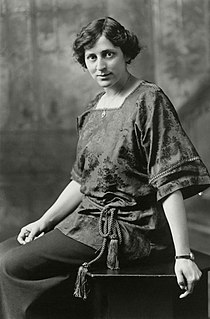A Quote by Cynthia Kauffman
Second-wave feminists didn't look for an overthrow of patriarchy. Instead, they analyzed what they were up against and fought it in all of its varied manifestations.
Related Quotes
You see, feminists don't really like to define the Patriarchy. They prefer to keep it nebulous and amorphous so they can conveniently blame it for everything that goes wrong in their lives. Not being paid enough? Patriarchy! Not getting a promotion? Patriarchy! Too many catcalls? Patriarchy! Too few catcalls? Patriarchy!
The problem with feminism in the second wave was that we fought so much among ourselves, and I think we did so much damage to the movement... and I think the next wave, the third wave, is women mentoring younger women and women helping younger women to enter the political process and the writing world.
I am also very proud to be a liberal. Why is that so terrible these days? The liberals were liberatorsthey fought slavery, fought for women to have the right to vote, fought against Hitler, Stalin, fought to end segregation, fought to end apartheid. Liberals put an end to child labor and they gave us the five day work week! What's to be ashamed of?
What is the problem of women's freedom? It seems to me to be this: how to arrange the world so that women can be human beings, with a chance to exercise their infinitely varied gifts in infinitely varied ways, instead of being destined by the accident of their sex to one field of activity--housework and child-raising. And second, if and when they choose housework and child-raising to have that occupation recognized by the world as work, requiring a definite economic reward and not merely entitling the performer to be dependent on some man.
I grew up in traditional black patriarchal culture and there is no doubt that I’m going to take a great many unconscious, but present, patriarchal complicities to the grave because it so deeply ensconced in how I look at the world. Therefore, very much like alcoholism, drug addiction, or racism patriarchy is a disease and we are in perennial recovery and relapse. So you have to get up every morning and struggle against it.
The United States initially poured money and arms into Pakistan in the hope of building a major fighting force that could assist in defending Asia against communism. Pakistan repeatedly failed to live up to its promises to provide troops for any of the wars the United States fought against communist forces, instead using American weapons in its wars with India.































